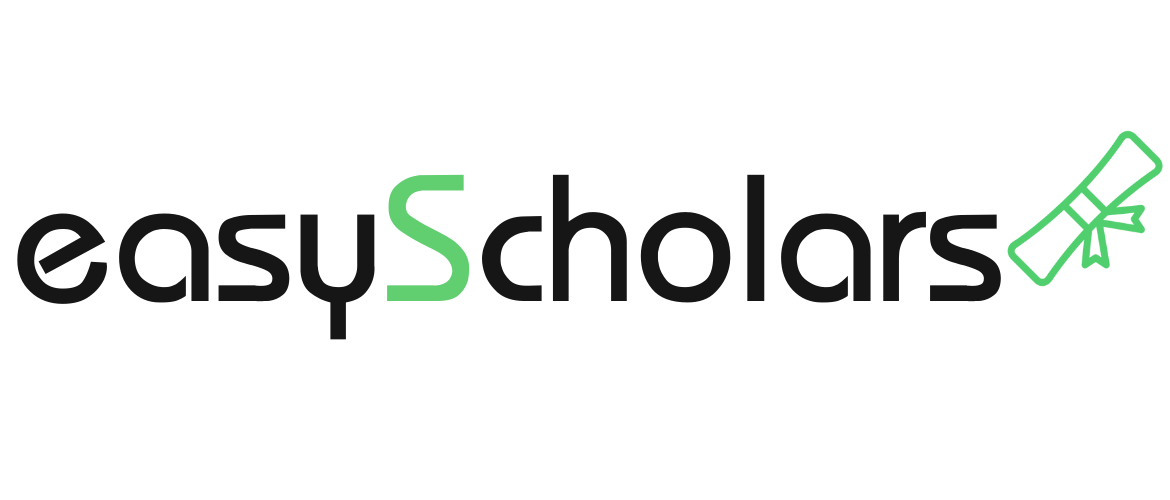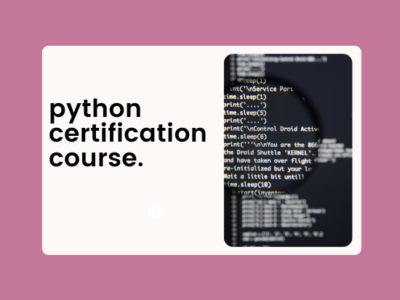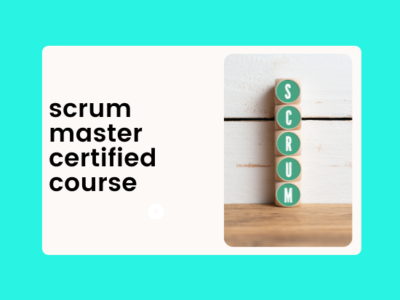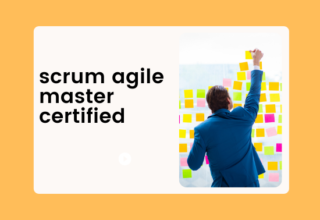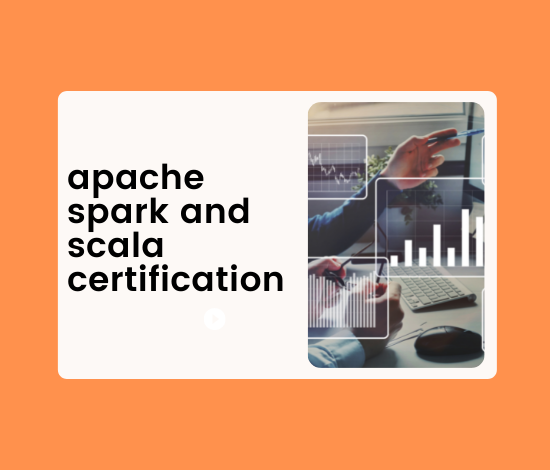Introduction to Big Data Hadoop and Spark
Learning Objectives: Understand Big Data and its components such as HDFS. In this Apache Spark training module, you will learn about the Hadoop Cluster Architecture, Introduction to Spark and the difference between batch processing and real-time processing.
Topics:
- What is Big Data?
- Big Data Customer Scenarios
- Limitations and Solutions of Existing Data Analytics Architecture with Uber Use Case
- How Hadoop Solves the Big Data Problem?
- What is Hadoop?
- Hadoop’s Key Characteristics
- Hadoop Ecosystem and HDFS
- Hadoop Core Components
- Rack Awareness and Block Replication
- YARN and its Advantage
- Hadoop Cluster and its Architecture
- Hadoop: Different Cluster Modes
- Hadoop Terminal Commands
- Big Data Analytics with Batch & Real-time Processing
- Why Spark is needed?
- What is Spark?
- How Spark differs from other frameworks?
- Spark at Yahoo!
Introduction to Scala for Apache Spark
Learning Objectives: Learn the basics of Scala that are required for programming Spark applications. In this Apache Spark course module, you will also learn about the basic constructs of Scala such as variable types, control structures, collections such as Array, ArrayBuffer, Map, Lists, and many more.
Topics:
- What is Scala?
- Why Scala for Spark?
- Scala in other Frameworks
- Introduction to Scala REPL
- Basic Scala Operations
- Variable Types in Scala
- Control Structures in Scala
- Foreach loop, Functions and Procedures
- Collections in Scala- Array
- ArrayBuffer, Map, Tuples, Lists, and more
Hands-on:
- Scala REPL Detailed Demo
Functional Programming and OOPs Concepts in Scala
Learning Objectives: In this Scala course module, you will learn about object-oriented programming and functional programming techniques in Scala.
Topics:
- Functional Programming
- Higher Order Functions
- Anonymous Functions
- Class in Scala
- Getters and Setters
- Custom Getters and Setters
- Properties with only Getters
- Auxiliary Constructor and Primary Constructor
- Singletons
- Extending a Class
- Overriding Methods
- Traits as Interfaces and Layered Traits
Hands-on:
- OOPs Concepts
- Functional Programming
Deep Dive into Apache Spark Framework
Learning Objectives: Understand Apache Spark and learn how to develop Spark applications. At the end, you will learn how to perform data ingestion using Sqoop.
Topics:
- Spark’s Place in Hadoop Ecosystem
- Spark Components & its Architecture
- Spark Deployment Modes
- Introduction to Spark Shell
- Writing your first Spark Job Using SBT
- Submitting Spark Job
- Spark Web UI
- Data Ingestion using Sqoop
Hands-on:
- Building and Running Spark Application
- Spark Application Web UI
- Configuring Spark Properties
- Data ingestion using Sqoop
Playing with Spark RDDs
Learning Objectives: Get an insight of Spark – RDDs and other RDD related manipulations for implementing business logics (Transformations, Actions, and Functions performed on RDD).
Topics:
- Challenges in Existing Computing Methods
- Probable Solution & How RDD Solves the Problem
- What is RDD, It’s Operations, Transformations & Actions
- Data Loading and Saving Through RDDs
- Key-Value Pair RDDs
- Other Pair RDDs, Two Pair RDDs
- RDD Lineage
- RDD Persistence
- WordCount Program Using RDD Concepts
- RDD Partitioning & How It Helps Achieve Parallelization
- Passing Functions to Spark
Hands-on:
- Loading data in RDDs
- Saving data through RDDs
- RDD Transformations
- RDD Actions and Functions
- RDD Partitions
- WordCount through RDDs
DataFrames and Spark SQL
Learning Objectives: In this Apache Spark online training module, you will learn about SparkSQL which is used to process structured data with SQL queries, data-frames and datasets in Spark SQL along with different kind of SQL operations performed on the data-frames. You will also learn about Spark and Hive integration.
Topics:
- Need for Spark SQL
- What is Spark SQL?
- Spark SQL Architecture
- SQL Context in Spark SQL
- User Defined Functions
- Data Frames & Datasets
- Interoperating with RDDs
- JSON and Parquet File Formats
- Loading Data through Different Sources
- Spark – Hive Integration
Hands-on:
- Spark SQL – Creating Data Frames
- Loading and Transforming Data through Different Sources
- Stock Market Analysis
- Spark-Hive Integration
Machine Learning using Spark MLlib
Learning Objectives: Learn why machine learning is needed, different Machine Learning techniques/algorithms, and SparK MLlib.
Topics:
- Why Machine Learning?
- What is Machine Learning?
- Where Machine Learning is Used?
- Face Detection: USE CASE
- Different Types of Machine Learning Techniques
- Introduction to MLlib
- Features of MLlib and MLlib Tools
- Various ML algorithms supported by MLlib
Deep Dive into Spark MLlib
Learning Objectives: Implement various algorithms supported by MLlib such as Linear Regression, Decision Tree, Random Forest and many more.
Topics:
- Supervised Learning – Linear Regression, Logistic Regression, Decision Tree, Random Forest
- Unsupervised Learning – K-Means Clustering & How It Works with MLlib
- Analysis on US Election Data using MLlib (K-Means)
Hands-on:
- Machine Learning MLlib
- K- Means Clustering
- Linear Regression
- Logistic Regression
- Decision Tree
- Random Forest
Understanding Apache Kafka and Apache Flume
Learning Objectives: Understand Kafka and its Architecture. Also, learn about Kafka Cluster, how to configure different types of Kafka Cluster. Get introduced to Apache Flume, its architecture and how it is integrated with Apache Kafka for event processing. In the end, learn how to ingest streaming data using flume.
Topics:
- Need for Kafka
- What is Kafka?
- Core Concepts of Kafka
- Kafka Architecture
- Where is Kafka Used?
- Understanding the Components of Kafka Cluster
- Configuring Kafka Cluster
- Kafka Producer and Consumer Java API
- Need of Apache Flume
- What is Apache Flume?
- Basic Flume Architecture
- Flume Sources
- Flume Sinks
- Flume Channels
- Flume Configuration
- Integrating Apache Flume and Apache Kafka
Hands-on:
- Configuring Single Node Single Broker Cluster
- Configuring Single Node Multi Broker Cluster
- Producing and consuming messages
- Flume Commands
- Setting up Flume Agent
- Streaming Twitter Data into HDFS
Apache Spark Streaming – Processing Multiple Batches
Learning Objectives: Work on Spark streaming which is used to build scalable fault-tolerant streaming applications. Also, learn about DStreams and various Transformations performed on the streaming data. You will get to know about commonly used streaming operators such as Sliding Window Operators and Stateful Operators.
Topics:
- Drawbacks in Existing Computing Methods
- Why Streaming is Necessary?
- What is Spark Streaming?
- Spark Streaming Features
- Spark Streaming Workflow
- How Uber Uses Streaming Data
- Streaming Context & DStreams
- Transformations on DStreams
- Describe Windowed Operators and Why it is Useful
- Important Windowed Operators
- Slice, Window and ReduceByWindow Operators
- Stateful Operators
Apache Spark Streaming – Data Sources
Learning Objectives: In this Apache Spark and Scala training module, you will learn about the different streaming data sources such as Kafka and flume. At the end of the module, you will be able to create a spark streaming application.
Topics:
- Apache Spark Streaming: Data Sources
- Streaming Data Source Overview
- Apache Flume and Apache Kafka Data Sources
- Example: Using a Kafka Direct Data Source
- Perform Twitter Sentimental Analysis Using Spark Streaming
Hands-on:
- Different Streaming Data Sources
Market for Big Data Analytics is growing tremendously across the world and such strong growth pattern followed by market demand is a great opportunity for all IT Professionals. Here are a few Professional IT groups, who are continuously enjoying the benefits and perks of moving into Big Data domain.
- Developers and Architects
- BI /ETL/DW Professionals
- Senior IT Professionals
- Testing Professionals
- Mainframe Professionals
- Freshers
- Big Data Enthusiasts
- Software Architects, Engineers, and Developers
- Data Scientists and Analytics Professionals
course objective.
- Overview of Big Data & Hadoop including HDFS (Hadoop Distributed File System), YARN (Yet Another Resource Negotiator)
- Comprehensive knowledge of various tools that fall in Spark Ecosystem like Spark SQL, Spark MlLib, Sqoop, Kafka, Flume and Spark Streaming
- The capability to ingest data in HDFS using Sqoop & Flume, and analyze those large datasets stored in the HDFS
- The power of handling real time data feeds through a publish-subscribe messaging system like Kafka
- The exposure to many real-life industry-based projects which will be executed using easyScholars’s CloudLab
- Projects which are diverse in nature covering banking, telecommunication, social media, and government domains
- Rigorous involvement of a SME throughout the Spark Training to learn industry standards and best practices
value added features.
- placement assistance
- 24/7 technical support
- resume building
- recorded sessions
- self-paced
- reference material
alumni
our Alumni Works at.

frequently asked question.
You will never miss a lecture at easyScholars! You can choose either of the two options:
- View the recorded session of the class available in your LMS.
- You can attend the missed session, in any other live batch.
Your access to the Support Team is for lifetime and will be available 24/7. The team will help you in resolving queries, during and after the course.
Post-enrolment, the LMS access will be instantly provided to you and will be available for lifetime. You will be able to access the complete set of previous class recordings, PPTs, PDFs, assignments. Moreover the access to our 24×7 support team will be granted instantly as well. You can start learning right away.
Yes, the access to the course material will be available for lifetime once you have enrolled into the Apache Spark online course.
We have limited number of participants in a live session to maintain the Quality Standards. So, unfortunately participation in a live class without enrollment is not possible. However, you can go through the sample class recording and it would give you a clear insight about how are the classes conducted, quality of instructors and the level of interaction in a class.
Apache Spark is one of the leading Big Data frameworks that is in demand today. Spark is the next evolutionary change in big data processing environments as it provides batch as well as streaming capabilities. This makes it the ideal framework for anyone looking for speed data analysis. With companies showing eagerness to adopt Spark in their system, learning this framework can help you climb up your career ladder as well.
Scala stands for Scalable languages. easyScholars’s training program is what you need if you are looking to master Spark with Scala. Our course module starts from the beginning and covers every module necessary. With our instructor led sessions and a 24×7 support system, we make sure that you achieve your learning objectives.
Followings are the top 5 certification:
- Cloudera Spark and Hadoop Developer
- HDP Certified Apache Spark Developer
- MapR Certified Spark Developer
- Databricks Apache Spark Certifications
- O’Reilly Developer Apache Spark Certifications
Databricks Certified Associate developer for Apache Spark 3.0 certification tests your understanding of Spark DataFrame API. It also assesses your ability to use the Spark DataFrame API in order to perform basic data manipulation tasks within a Spark session. These tasks include manipulating, filtering, dropping and sorting columns, handling missing data, and combining, reading and writing DataFrames with schemas. They also involve working with UDFs or Spark SQL functions. The exam will also assess fundamental aspects of Spark architecture such as execution/deployment mode, execution hierarchy, fault tolerance and garbage collection.
course outcome.
Write Scala Programs to build Spark Application Master the concepts of HDFS Understand Hadoop 2.x Architecture Understand Spark and its Ecosystem Implement Spark operations on Spark Shell Implement Spark applications on YARN (Hadoop) Write Spark Applications using Spark RDD concepts Learn data ingestion using Sqoop Perform SQL queries using Spark SQL Implement various machine learning algorithms in Spark MLlib API and Clustering Explain Kafka and its components Understand Flume and its components Integrate Kafka with real time streaming systems like Flume Use Kafka to produce and consume messages Build Spark Streaming Application Process Multiple Batches in Spark Streaming Implement different streaming data sources
